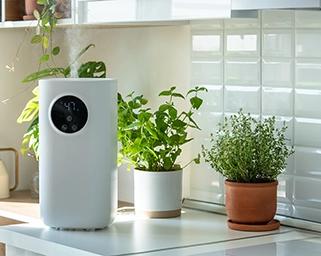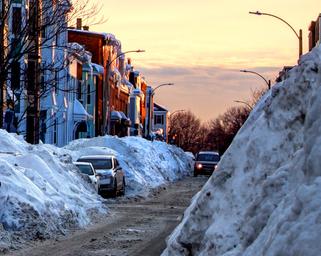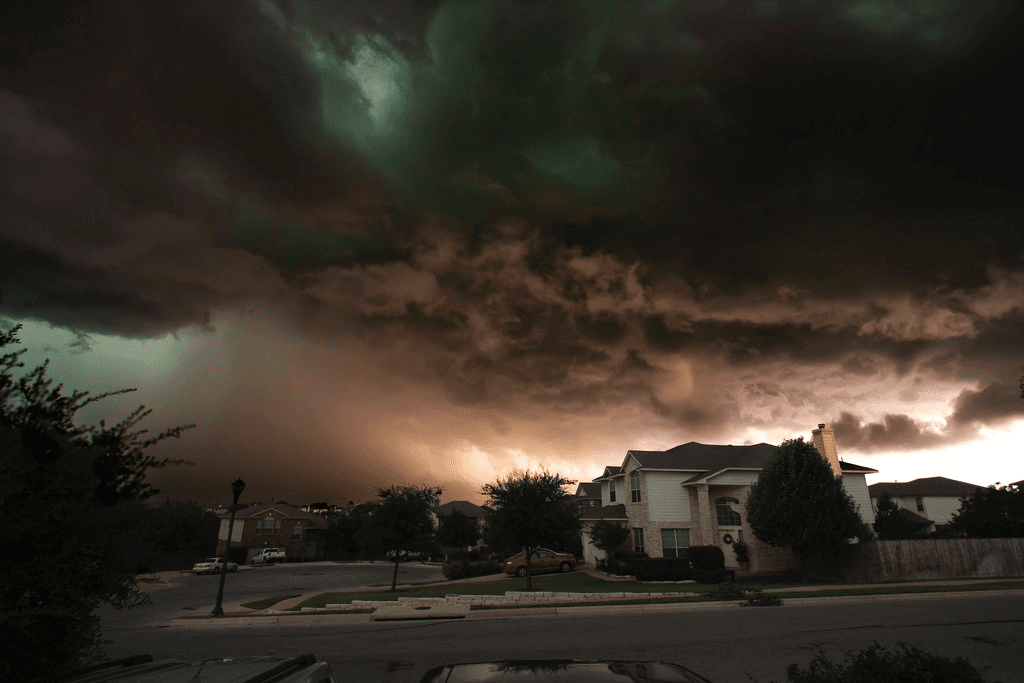Prepare Your HVAC System for Tornado Season
March 4-8 is Severe Weather Preparedness Week. There is no better time than now to prepare your HVAC system for tornado season, and know what to do in the event a tornado is headed your way.
By Anne Fonda
Tornadoes are violent storms that can wreak havoc on communities. According to the National Weather Service (NWS), approximately 1.000 tornadoes are reported across the United States each year. Peak tornado season is March through June, with 70% of tornadic activity occurring during those months.
Tornadoes can happen nearly anywhere at any time of year, but most commonly occur in the central plains states east of the Rocky Mountains and west of the Appalachians. They usually happen in the late afternoon and evening during the spring and summer. Spring is peak tornado season for southern states while peak season in the northern states can extend through the summer.
The NWS recommends you create a tornado safety plan for home, school, work, and out on the road. Follow the link for tips on how to prepare for a tornado. As part of tornado preparation at home, we have 4 tips to prepare your HVAC system for tornado season. Some of these tips involve preparing your HVAC system before a tornado, while others involve some very last-minute preparations to protect your system.
Tip #1. Get Your HVAC Inspected
We recommend that you have your HVAC inspected every spring and every fall. If you live in a southern state where tornado season starts earlier, try to schedule the inspection/maintenance visit soon.
The HVAC technician will inspect, clean, and repair your AC unit or heat pump. This includes inspecting the electrical wiring, refrigerant cycle components, the fan, and more. Tell them if you have any special concerns or have noticed anything different.
If you have a home built before 2007, you may also want to ensure that the gas line coming into your home is properly bonded. This is called CSST Bonding. Ensuring this can help prevent a fire or explosion of the gas line if your home is struck by lightning. Building codes change, and you can consider this a safety upgrade.
Tip #2. Install a Surge Protector
You’re probably familiar with the surge protector power strips you can use on the inside of your home to protect home electronics such as TVs and computers from a power surge. But did you know there are special surge protectors for your HVAC system?
Installing an HVAC surge protector will protect your system from excess energy (power surges) that can occur due to lightning strikes, flickering power, or total power outages.
Choose the Right HVAC Surge Protector
Be sure to select a surge protector that is specifically designed for HVAC systems. You’ll want one that can withstand repetitive power surges, extreme temperatures, and extreme humidity. It will protect your system during any kind of storm Mother Nature sends your way.
Look for a surge protector with better performance ratings. These can include the Nominal Discharge Current Rating from Underwriters Laboratories (UL) and Gas Discharge Tube (GDT) Technology. GDT technology dissipates a power surge across multiple pathways, effectively dissipating a larger surge than other models.
You may want to consult with an HVAC professional to ensure you get a surge protector that is compatible with your system and will fit in the space available. You should also hire a licensed HVAC company to install the surge protector.
Tip #3. Secure and Protect Your HVAC Unit
Outside, protecting your HVAC from tornado damage starts with removing any debris or small items near the outdoor unit. Consider cutting back any overhanging tree branches well before a storm is imminent. Strong winds can blow items into your unit or cause tree limbs to fall on it.
Examine your outdoor unit and tighten any loose screws. Invest in straps and tie-downs to better secure your outdoor unit. Tornadoes pack winds that can easily lift an HVAC unit and send it flying. Condenser unit tie-down kits help permanently anchor the unit to the concrete, pad, or stand that the unit is sitting on. They’re commonly known as hurricane clips but can protect your unit during a tornado as well. Follow the directions to properly secure the unit.
For a temporary solution, you can also use ratchet straps and stakes to tie down the unit - 4 stakes and two criss-crossing straps.
Tip #4. Safety Measures: Turn Off Your HVAC System
The first thing to do if your area is under a tornado warning is to get your family and pets to a safe place such as a basement. If you don’t have a basement, take shelter in a first-floor indoor room with no windows, such as a bathroom or closet. A tornado warning means a tornado has been sighted or shown on radar in your area and there is an imminent threat to life and property.
If you have the time before taking shelter, turn off your HVAC system during a tornado warning. Doing so can protect the system from a power surge that might be stronger than the surge protector can handle.
Turning off your HVAC system is easy to do. One option is to turn it off at the thermostat. Some systems have a switch on the side of an indoor unit. It looks like a light switch. Flip the switch from on to off. Another option is to turn the system off at the breaker box. There should be a dedicated circuit labeled HVAC/AC/Furnace or something like that.
After the threat of a tornado and severe weather has passed, you can inspect the outdoor unit for visible damage. Clear away any debris. Turn the system back on the same way you turned it off. If you run into any problems, contact your local HVAC professional.
Contact the Experts for HVAC Repair and Replacement
We certainly hope you never have to experience a tornado close to home. But if a lightning strike or tornado causes damage to your HVAC system, contact your local Trane dealer for help. They stand ready to provide emergency system repairs or full system replacement.
Anne Fonda, Content Writer
A Content Writer with Trane Technologies, Anne Fonda researches topics and writes for Trane® and associated residential HVAC brands. She works in collaboration with Trane Technologies subject matter experts, offering easy-to-understand, informative content on complex topics. Her goal is to help consumers make informed decisions on the products and services they need.
She has written for HVAC and other service provider websites for over 16 years. Before transitioning to web content writing, Anne had a 14-year stint as an award-winning journalist. She graduated cum laude from the University of Missouri-Columbia School of Journalism.
When she’s not working, Anne enjoys playing word games, reading, gardening, spending time with family, and visiting gardens and museums.
Expert review by Kimberly Sexton, Senior Systems Engineer




